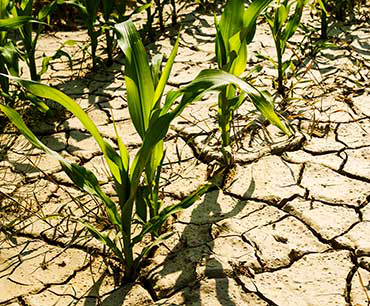The Intergovernmental Panel on Climate Change (IPCC), the leading international body for assessing the science related to climate change, has embarked on its seventh assessment cycle, focusing its initial efforts on the increasingly critical intersection of climate change and urban environments. This undertaking will culminate in a Special Report on Climate Change and Cities, slated for release in March 2027. Significantly, two Nigerian professors, Ibidun Adelekan and Aliyu Barau, have been selected as lead authors, contributing their expertise to this globally vital report. Their involvement not only underscores the growing recognition of African scholarship in climate science but also ensures that the unique challenges and solutions emerging from rapidly urbanizing African cities are integrated into global climate strategies.
Professor Ibidun Adelekan, a distinguished geographer from the University of Ibadan, brings a wealth of experience in the human dimensions of global environmental change. Her research delves into the intricate relationships between climate change, disaster risk reduction, and community resilience, particularly focusing on the vulnerabilities of West African communities. Professor Adelekan’s contributions to Chapter 2 of the report will be invaluable in shaping effective climate adaptation strategies, drawing upon her deep understanding of the social and economic impacts of climate change on vulnerable populations. Her work emphasizes the necessity of tailoring climate action to the specific needs and realities of different communities, ensuring that adaptation efforts are both effective and equitable.
Professor Aliyu Barau, Dean of the Faculty of Earth and Environmental Sciences at Bayero University, Kano, and West Africa Hub Director of the Urban Climate Change Research Network (UCCRN), contributes a complementary perspective focused on urban planning, sustainability, and climate resilience within the context of rapid urbanization. His focus on African cities brings a crucial lens to Chapter 5 of the report, addressing the complex interplay of urban development and climate change adaptation policies. Professor Barau’s work highlights the importance of integrating climate considerations into urban planning processes, ensuring that cities are designed and managed to minimize climate risks and maximize their resilience in the face of changing environmental conditions.
The selection of Professors Adelekan and Barau as lead authors was part of a rigorous process undertaken during the IPCC’s 61st Session in Sofia, Bulgaria. From a pool of over 1,200 nominations, 97 experts were chosen based on their scientific, technical, and socio-economic expertise, with a strong emphasis on geographical and gender balance. The selection of over half of the authors as women, and a significant proportion representing developing countries and economies in transition, highlights the IPCC’s commitment to inclusivity and diverse perspectives. This approach ensures that the report reflects a broad range of experiences and knowledge, enhancing its relevance and applicability across diverse urban contexts.
The Special Report on Climate Change and Cities is poised to be a pivotal document, providing a comprehensive assessment of the latest scientific understanding of climate impacts, risks, and mitigation strategies specific to urban areas. With more than half of the global population residing in cities, and projections indicating significant urban growth by 2050, the report’s findings will be crucial for informing policy decisions, guiding urban planning initiatives, and empowering climate activism worldwide. The report serves as a “call to action,” urging cities to embrace their potential as key actors in addressing climate change while simultaneously promoting resilience, inclusivity, and sustainability.
The IPCC has emphasized its commitment to a transparent and inclusive process throughout the report’s development. The scientific community is encouraged to participate as expert reviewers, contributing their insights and expertise to enrich the final product. A call for participation in the review of the first order draft is scheduled for the second half of 2025, providing ample opportunity for diverse voices and perspectives to be incorporated. This collaborative approach aims to ensure that the report is comprehensive, robust, and reflective of the latest scientific understanding, providing a solid foundation for informed decision-making and effective climate action in urban areas globally. The unprecedented global interest in contributing to this report underscores the growing recognition of the crucial role cities play in both mitigating and adapting to climate change.
The inclusion of Professors Adelekan and Barau in this esteemed group of experts highlights the increasing recognition of African researchers in global climate discourse. Their contributions will not only elevate Nigeria’s profile in international climate research but, more importantly, ensure that the unique challenges and opportunities presented by African urban environments are central to the development of effective global climate strategies. As cities become increasingly important battlegrounds in the fight against climate change, the insights and expertise of these Nigerian scholars will be invaluable in shaping a sustainable and resilient urban future for all.


